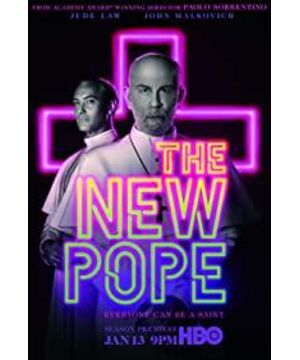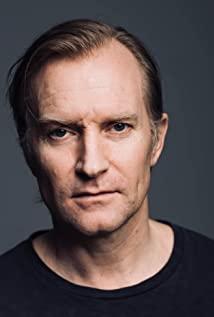It is still Sorrentino's beautiful picture and spiritual soundtrack, which is both fairy and demon, and sacred dance.
Every sentence seems to be a drug, and it seems to be an oracle.
Like The Young Pope, it has a very complete and reflexive mythological structure. The climax is still in the last three episodes. In the first seven episodes, all the chaos reached the brink of collapse, and the last three episodes reversed, redeemed, and completed the reflexive structure.
The self-reflection of "The Young Pope" is that at first PiusXIII only loved abstract gods and did not know how to love ordinary mortals; he was extremely conservative and insisted on mystery, which made the Vatican almost betray each other, but he could perform miracles that common sense cannot explain, In the end, he won the love of the world with two speeches and a love letter.
In the first seven episodes of "The New Pope", the Vatican was in chaos, the faithful were indulging in the idolatry of the former Pope Pius XIII, and the secretary of state who had been raised by a favored cardinal, a pregnant nun, and resigned was completely lost. The last three episodes were a big reversal, all people found their way and all love was acknowledged. The two popes have their own homes, John Paul III to mortals and Pius XIII to heaven.
Radical fanaticism can restore the lost sight of the church and create a momentary wave, but the future of the church is moderation and moderation, and acceptance of diversity. As PiusXIII said in his final speech, this is not the middle way, this is the way.
John, who represents the moderate centrist, has this to say when discussing the various "morbid loves" of the clergy: "Love cannot be cured. You can cure cancer, but you cannot cure love."
As a result, the nun's child was not taken away, the gay cardinal was not charged, the outgoing pope even got together with the outgoing market consultant, and parents who had hated them all their lives wanted to see him.
Because God's truth is absolute, and human love is so relative.
The ending is very unacceptable on the surface, PiusXIII comes back to life, but once again died surrounded by thousands of people. If you think about it, this ending is reasonable and self-consistent.
In the end, the pain is relieved, and the knee is enthusiastically offered. All men are reconciled to themselves, and saints belong to heaven forever.
John Paul III himself is a mortal man. He is inferior and vulnerable. He hates himself because of the death of his twin brother Adam, and expects the papacy to heal himself and prove that God loves him. In the end he became a mortal;
Pius XIII is portrayed as an incarnation of Jesus, filled with metaphors corresponding to Jesus everywhere. And Jesus is in heaven, and only when he dies again can he complete the final consecration.
In the title, walking from the sea is a metaphor for him, Rise from the dead
And at the end it was him going to the sea, to the kingdom of God.
Only PiusXIII can have the love of idolatry, and idols must die.
Idolatry is for god, and god, is in heaven.
The conclusion of Socrates' Apology:
"I die, you live,
Which way is better, only God knows. "
(There was also a paraphrase of Socrates in the previous season, when the Pope's love letter opened with:
Which is more beautiful, my love? Love lost, or love found?
It ends with: I don't know, that is how I would like to imagine it, the answer
No answer is the answer I want)
View more about The New Pope reviews











